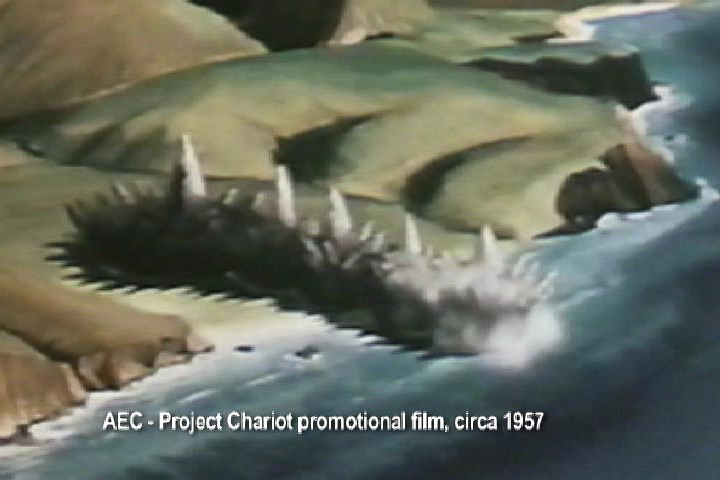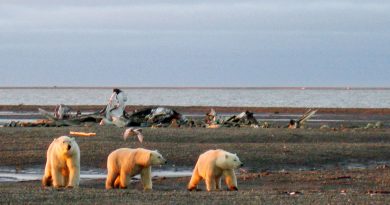Film examines legacy of 1950s nuclear project in Arctic Alaska
 Much has been written about Project Chariot, the 1950s-era program that contemplated using nuclear bombs to create a deep-water harbor on Alaska’s northwest coast.
Much has been written about Project Chariot, the 1950s-era program that contemplated using nuclear bombs to create a deep-water harbor on Alaska’s northwest coast.
However, a new film brings the story full circle by sharing the lasting impacts of what could have been a nuclear disaster.
“History of the Inupiat: Project Chariot” is the third film from Barrow-raised filmmaker Rachel Naninaaq Edwardson.
It’s part of a series, produced in conjunction with the North Slope Borough School District, documenting the oral history of the Inupiat people. “Project Chariot” premieres 3 p.m. Sunday at the Anchorage Museum.
“Project Chariot” is more than a historical film. The movie tries to tie Project Chariot to health issues in the area today — namely, the high rate of cancer area residents face.
A 1958 U.S. government project designed to showcase the peaceful uses of nuclear weapons, Project Chariot intended to use nuclear bombs to create an artificial deep-water harbor near Point Thompson, which is about 30 miles south of Point Hope in northwest Alaska along the Chukchi Sea.
Edwardson said cancer is the leading cause of death in the village of Point Hope today. The film unfolds with historical footage juxtaposed against multiple interviews of Point Hope residents, including past and present mayors and village doctors.
The film also poses several questions the residents of Point Hope take very seriously: Although no nuclear bomb was detonated, exactly what happened at Point Thompson? What was left behind? How is it affecting the health of those who live in the area?
“We have a community who have been lied to, ignored and experimented on with toxic materials,” Edwardson said in an email. “They are a Native community and they are my family. They have a right to tell their story, to have their voices heard.”
This film is part of a series on the “History of the Inupiat” designed to fit around school curriculum. Edwardson described the project as an “ambitious initiative to document Inupiat history from pre-contact to present.
“The film series is a step towards … bringing Inupiat history and learning into the western (Alaska) school system so that our children can find a true sense of pride around their Iñupiat heritage,” Edwardson wrote.
Two films in the project — “Project Chariot” and “The Duck In” — both show how Alaska Natives took control of their heritage and their land. “Project Chariot” suggests that the government thought it would be easy to do a nuclear project in the remote northwest Arctic because the people wouldn’t resist it. History would show that that was far from the case.
The community of Point Hope continues to look for answers. While many documents related to project have been collected, questions linger over what sort of debris remains behind.
Inupiat leaders have been working with the Obama administration to release more classified documents related to the project, hoping to gain an understanding of what was left behind. Edwardson said the federal government is doing an internal review and researching what has been left at the site.
“This is clearly a very sensitive issue for the government and the people of Point Hope, so everyone is waiting to see what the response of the (U.S.) government will be,” she wrote.
Edwardson said she didn’t intend to make a controversial film and doesn’t particularly enjoy “being in the heat” of things. But the film and its message are important, she added, and something she’s willing to stand up for.
“It is clear that not all the facts have been given to the public,” she said. “I believe in honoring the Inupiat story and documenting this painful and unresolved chapter in the nation’s history.”
“History of the Inupiat: Project Chariot” screens at 3 p.m. Sunday, Oct. 14 at the Anchorage Museum.
Editor’s Note: Alaska Dispatch Publisher Alice Rogoff assisted in the post-production of the film and is credited as an associate producer.
Contact Suzanna Caldwell at suzanna(at)alaskadispatch.com
For more stories from Alaska Dispatch, click here



